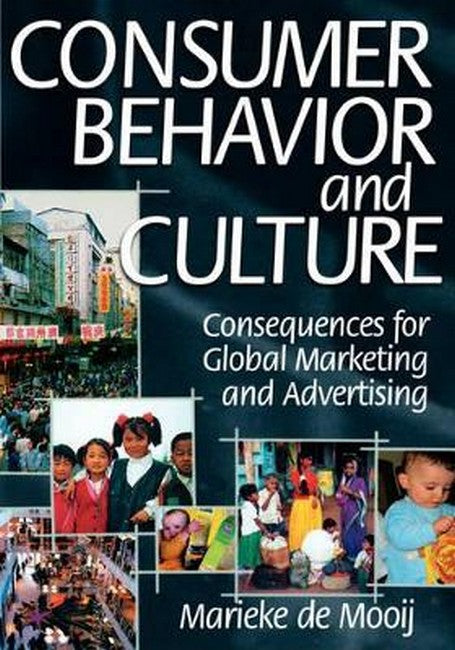Marieke de Mooij, Ph.D. (Netherlands), is a consultant in cross-cultural communications, as well as a retired profesora associada of international advertising at the University of Navarra in Spain and visiting professor at several universities across the world. She is the author of several academic publications on the influence of culture on marketing and advertising. She has also authored books on culture and consumer behavior as well as culture and communication theory worldwide.
Request Academic Copy
Please copy the ISBN for submitting review copy form
Description
Chapter 1: Global consumers in a global village? The global village Globalization and global consumer culture Converging and diverging consumer behavior Post scarcity societies and the culture paradigm Global communities? New media Universalism Lack of a sense of history Branding and advertising: From global to multi-local Consumer behavior theory across cultures Chapter 2: Values and culture Values Values are enduring Values in marketing Culture defined Comparing cultures Dimensions of culture Hofstede: Five dimensions of national culture Schwartz: Seven value types or motivational domains Comparing models Culture relationships Chapter 3: Convergence and Divergence in Consumer Behavior Convergence theory Modernization Convergence: Macro- and micro-level Convergence-divergence in consumer behavior National wealth as an explaining variable Over time culture replaces income as an explanatory variable With increased wealth cultural values become manifest Other measurement variables Urbanization Population density Education Age distribution Social classs Ethnicity Climate Consumer behavior, national wealth and culture Chapter 4: The Consumer: Attributes A model of cross-cultural consumer behavior Personality The brand personality concept The concept of self Implications for marketing, branding and advertising Self-enhancement and self-esteem Personal traits Brand personality traits Identity and image Corporate identity and brand identity Attitude Attitude and behavior Lifestyle Chapter 5: Social processes Motivation, needs and drives Culture-related consumer needs and motives Emotion Emotions in advertising Group processes Reference groups Opinion leaders Chapter 6: Mental processes Cognition and cognitive styles Learning and socialization Cognition and affect Language Perception The creative process Attribution Locus of control Information processing Involvement theory Communication and culture Communication styles Advertising styles Decision-making Chapter 7: Consumer behavior domains Product acquisition, usage and ownership Food and beverages Non-durable household products Non-durable personal goods Clothing and footwear Household appliances Consumer electronics Luxury articles Communication technology Computers and the Internet Cars Leisure Finance Shopping and buying behavior Complaining behavior Brand loyalty Diffusion of innovations Media behavior Responses to marketing-communications Chapter 8: Applications to global marketing and adverting Product-market development across countries Branding strategies Retailing Segmenting international markets Cross-cultural values and lifestyle studies Academic cross-cultural studies Research techniques and methods across cultures Predicting market success The purpose of advertising Advertising research The future of global advertising Appendix 1 GNP/capita 2001 (US$) and Hofstede country scores for 64 countries Appendix 2 Data sources
"Marieke de Mooij shows that American theories of consumer behavior do not necessarily apply abroad. Her national consumption data are an unobtrusive measure of national cultures. She has made marketing students discover culture, and her work should make cross-cultural psychologists discover the consumer as an informant." -- Geert Hofstede "Prof. De Mooij helps the reader navigate unknown landscapes through interesting anecdotes. Where she goes beyond anecdotes, are the solid analyses around a well-tested statistical model for understanding cultures. Dr de Mooij has written a timely book, one that adds tremendously to informed debate on what culture means for consumption. For practitioners, be they in academia or business, it demonstrates once again exactly how rich insights can be extracted from rigorous data. It is an exhortation to go beyond the first conclusion that springs to mind. Finally, as citizens of a rapidly developing country , all Indian readers would be grateful to the author for asserting what we have always thought but have seldom been encouraged to believe that we are representatives of unique history, heritage and culture. And that being Indian is not a cause for being defensive on the Global Arena." -- Sushobhan Mukherjee

